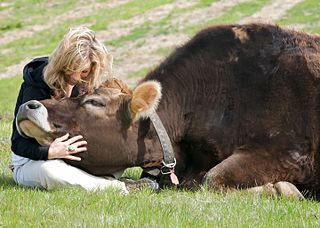A Quote by Joel Fuhrman
Certainly adding fats in the form of oils is fattening and unhealthy, but naturally fat-rich foods like nuts and seeds have profound cardiovascular benefits.
Related Quotes
Seven Guidelines For a Healthy Diet
1. Substitute low-fat foods for high-fat foods
2. Cut down on meat-eat low on the food chain
3. Avoid salty and sugary foods
4. Cut down on sugar
5. Emphasize whole grains
6. Beware of alcohol
7. Emphasize the Healthy Five:
Raw unsalted nuts and sesame seeds
Sprouted seeds such as soybeans
Fresh raw wheat bran and wheat germ
Yogurt and kefir
Fresh fruits and vegetables
The ideal human diet looks like this: Consume plant-based foods in forms as close to their natural state as possible (“whole” foods). Eat a variety of vegetables, fruits, raw nuts and seeds, beans and legumes, and whole grains. Avoid heavily processed foods and animal products. Stay away from added salt, oil, and sugar. Aim to get 80 percent of your calories from carbohydrates, 10 percent from fat, and 10 percent from protein.
The phytochemicals, antioxidants, and fiber- all of the healthful components of plant foods- originate in plants, not animals. If they are present, it is because the animal ate plants. And why should we go through an animal to get the benefits of the plants themselves? To consume unnecessary, unseemly, and unhealthy substances, such as saturated fat, animal protein, lactose, and dietary cholesterol, is to negate the benefits of the fiber, phytonutrients, vitamins, minerals, and antioxidants that are prevalent and inherent in plants.
Dull witted brooding people love to stuff themselves with quantities of heavy food, just like animals for fattening. Bubbly intellectual people love foods which stimulate the taste buds without overloading the belly. Profound, meditative people prefer neutral foods which do not have an assertive flavor and are not difficult to digest, and therefore do not demand too much attention.


































